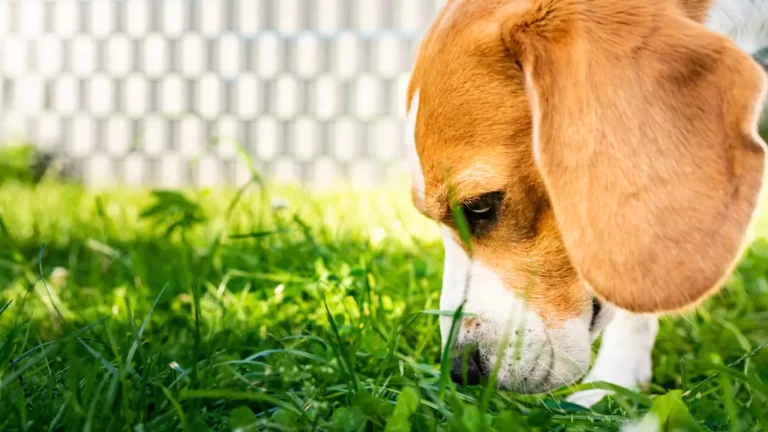Yes, eating cat food can make dogs throw up. Cat food has a higher protein and fat content than dog food. The different nutritional profiles can upset dogs’ stomachs and lead to vomiting or diarrhea.
Why Cat Food is Bad for Dogs?
Cat and dog foods are formulated to meet the different nutritional needs of cats and dogs. Cats are obligate carnivores and require a diet high in animal protein and fat. Dogs are omnivores and need a more balanced diet with moderate protein and fat content.
Cat food contains over double the protein and fat compared to most dog foods. The average cat food has about 45% protein and 20% fat, while dog foods range between 18-25% protein and 5-15% fat. This extremely high protein and fat content exceeds what dogs require.
Feeding cat food long-term can cause serious health issues for dogs like:
- Obesity: The increased fat and calories lead to rapid weight gain. Excess weight stresses joints and organs.
- Pancreatitis: High fat levels can inflame the pancreas causing vomiting, diarrhea, lethargy, and abdominal pain.
- Kidney Disease: Excess protein puts strain on the kidneys which can worsen kidney function.
- Nutritional Imbalances: Dog foods add vitamins/minerals dogs need that cat foods don’t provide. Lack of calcium, for example, can cause bone problems.
Consuming cat food, even occasionally, can also cause more immediate issues like vomiting, diarrhea, gas, bloating, and lack of appetite in dogs due to inappropriate nutrition.
Can Dogs Eat Cat Food?
It’s not recommended for dogs to eat significant amounts of cat food or for cat food to make up a regular part of their diet. Occasional nibbles likely won’t cause major issues for an otherwise healthy dog. However, eating larger quantities or eating cat food consistently can definitely lead to vomiting, diarrhea, or other stomach upsets.
Some dogs may also be more prone to vomiting and diarrhea after eating cat food than others. Factors like your dog’s size, breed, age, metabolism, or overall health status can influence how well they tolerate cat food. Smaller dogs, puppies, and senior dogs may become sick faster than larger, adult dogs.
While some dogs have strong stomachs and eat almost anything without reaction, you can’t know how cat food may affect your individual dog without them trying it. It’s safest to keep cat food out of reach of dogs to avoid adverse reactions.
Tips to Prevent Dogs from Eating Cat Food
To keep your dog from eating cat food and getting sick, follow these tips:
- Store cat food in a cabinet or pantry dogs can’t access. Use baby locks if needed. Never leave cat food out unattended.
- Place cat dishes on high surfaces like counters or cat trees. Elevated areas prevent dogs from stealing cat food.
- Feed cats and dogs in separate rooms with closed doors. Schedule meals at the same times.
- Train your dog to avoid cat food. When they approach, redirect them to a toy or their own food. Reward with treats for leaving the cat food alone.
- Use scent deterrents around cat dish areas. Citrus or mint oils can repel dogs.
- Try containers with locking lids to prevent dogs from opening and accessing cat food.
- If your dog already eats cat food, transition them slowly to dog food over 2-3 weeks, mixing small amounts together.
Keeping cat food securely out of reach and training dogs not to eat cat food are the best ways to avoid digestive upsets from dogs eating cat food.
Careful supervision at mealtimes and feeding pets in separate spaces can also help prevent inappropriate food stealing.







